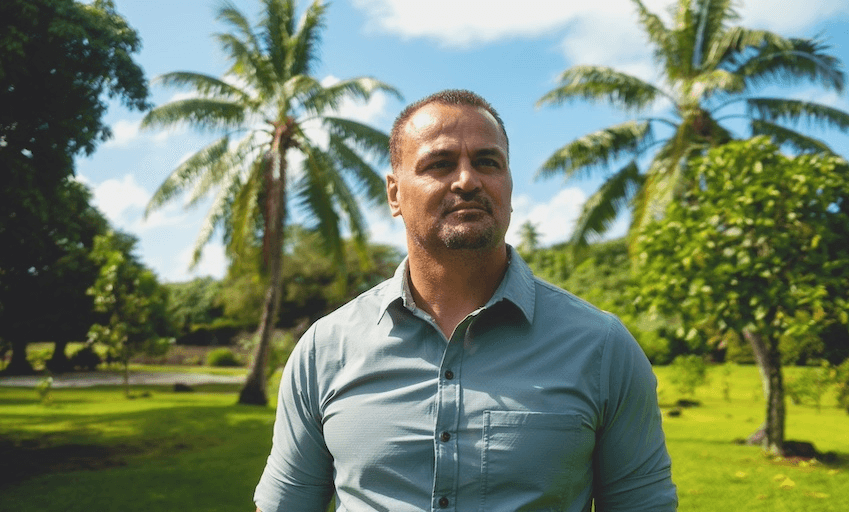Based on the experiences of writer and lead actor Amanaki Prescott-Faletau, this refreshing fakaleitī take on the classic American high school romcom is a must-see, writes Sela Jane Hopgood.
The lowdown
A transgender or fakaleitī student Lisa starts her fourth high school, St Valentine’s, after having to leave her previous three schools due to bullying. The captain of the first XV rugby team, Mose, is dared by his friends to make Lisa fall in love with him – which she does, but Mose unexpectedly catches genuine feelings for her in the process.
The one-hour show follows Lisa as she discovers who she is in a conservative Tongan household, standing her ground in her identity in a Catholic school. She faces ignorance, clichéd insults and obnoxious stares from the public on her journey to acceptance from her loved ones.
Inky Pinky Ponky is based on real life experiences of writer and actor Amanaki Prescott-Faletau, who plays Lisa. It’s the true story about the traumas and triumphs of growing up queer. The story was originally written as a stage play by Prescott-Faletau and Leki Jackson-Bourke, which was hugely popular among many Pasifika school students.
The good
This is not your average high school romcom. It’s better. Lisa’s breaking of the fourth wall and acknowledging the presence of the audience is powerful in a story that highlights the harsh realities of Pasifika LGBTQIA+ during their adolescent years. Lisa is an only child and struggles to make friends, so we, the viewers, are her allies – and you won’t regret being one with her snappy sense of humour and caring nature.
There is a powerful scene in which Lisa’s teacher is checking the attendance roll and calls out the name Lewis. Lisa does not respond. Lisa confidently stands up and explains that on paper she is named Lewis, but she would prefer to be called Lisa. The teacher acknowledges and normalises Lisa’s preference with so much respect, you would be team Matua by the end of the show. A beautiful scene that showcases how simply we can progress in society. It also works to balance the negativity that Lisa goes through in later scenes.
The not-so-good
Not long enough! I would have loved to have seen how Lisa and her mother’s relationship had grown after the school ball as well as watch what Mose does to win back Lisa’s heart.
The verdict
A 10/10 television show that needs a part two (and three). The storytelling by Prescott-Faletau is piercingly accurate, from the mannerisms of the Tongan mother executed beautifully by Sesilia Pusiaki to the high school slang. The beauty of this show is how authentic a representation it is of the Pasifika community and a beautiful validation that the stories from this community deserves the spotlight.
Inky Pinky Ponky, directed by Damon Fepulea’i and Ramon Te Wake, is available on MĀORI+2 and will be available on The Coconet TV on 20 July 2023, streaming all around the world.
This is Public Interest Journalism funded through NZ On Air.



